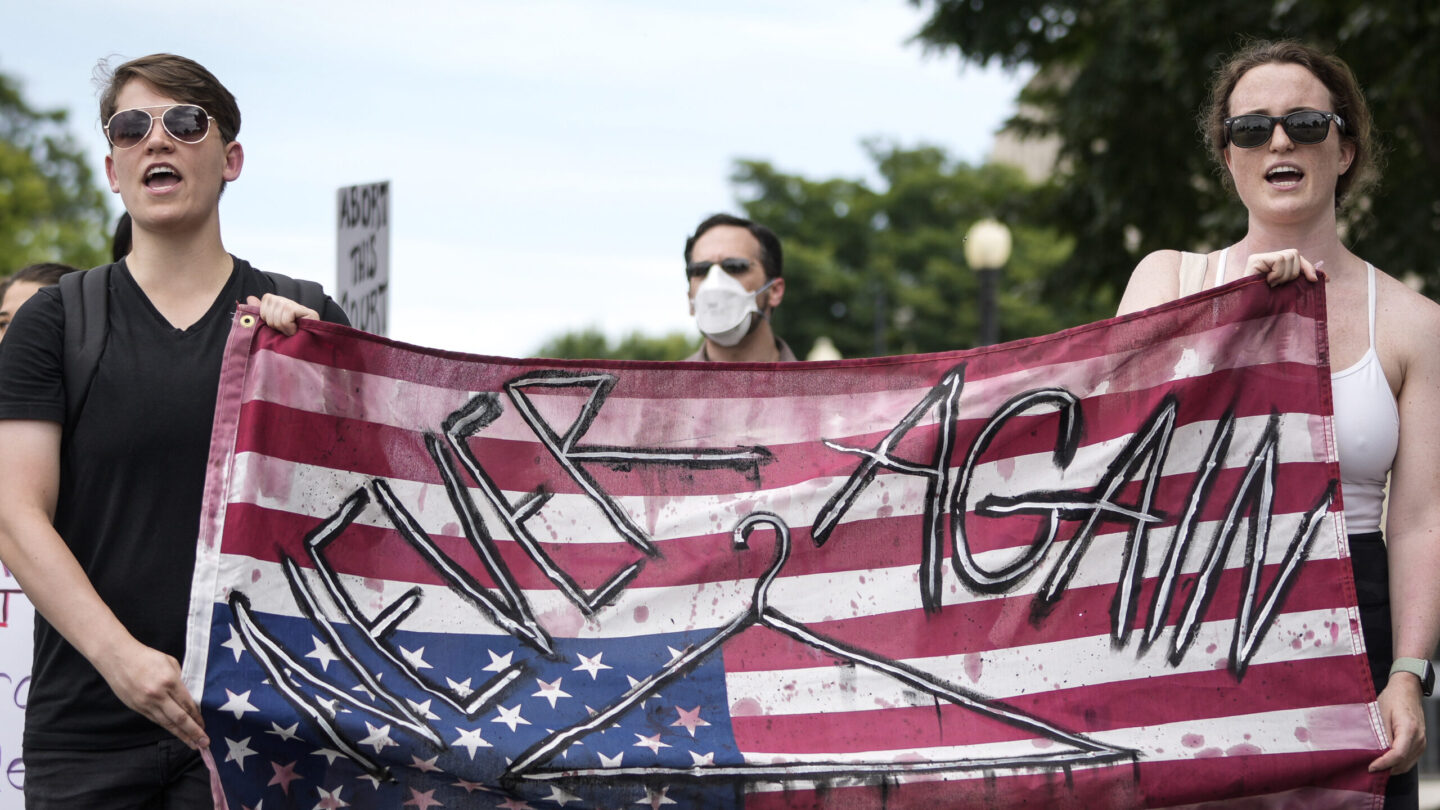A new executive order aims to preserve abortion access, but its reach is limited

Drew Angerer / Drew Angerer
President Biden will sign an executive order to take some incremental steps to try to preserve access to abortion services after the Supreme Court overturned Roe v. Wade two weeks ago.
At least nine states have banned abortion so far — including Alabama, Arkansas, Mississippi, Missouri, Oklahoma, South Dakota, Texas, West Virginia and Wisconsin. A dozen more states are expected to prohibit or restrict the procedure in the coming weeks.
The executive order makes a limited effort
The executive order, which Biden is expected to sign on Friday, pledges to ensure the safety of abortion patients and providers, including setting up mobile clinics near the borders of states restricting abortion access.
It also seeks to convene private, pro bono lawyers to offer support to people crossing state lines to get an abortion.
Another part of the order directs the secretary of Health and Human Services to issue a report in the next 30 days outlining additional actions to protect medication abortion, expand access on emergency contraception and IUDs, and increase public education around reproductive rights.
The Biden administration is also calling on the Federal Trade Commission — an independent body — to consider taking steps to protect the privacy of people who are looking for information about abortion services.
To help coordinate the administration’s policies, the order will create a new task force on reproductive health care.
Additional actions will depend on Congress
The White House says the executive order builds off the administration’s previous steps to protect abortion access.
That included providing nearly $3 million in new funding to bolster training and technical assistance for family planning providers as well as offering paid leave for federal workers who need to travel to obtain reproductive health care.
Still, none of the measures have yet addressed demand from some Democratic governors to supply additional abortion care resources in their states, nor have they considered travel assistance for pregnant people who are seeking abortions but live in states that restrict the procedure.
The limited measures come as Biden is under increasing pressure from Democrats to take further steps and consider more ideas on abortion access.
In response, Biden has emphasized that Congress needs to codify abortion rights, but that there are not currently enough votes in the Senate to do so.
9(MDAxODM0MDY4MDEyMTY4NDA3MzI3YjkzMw004))








